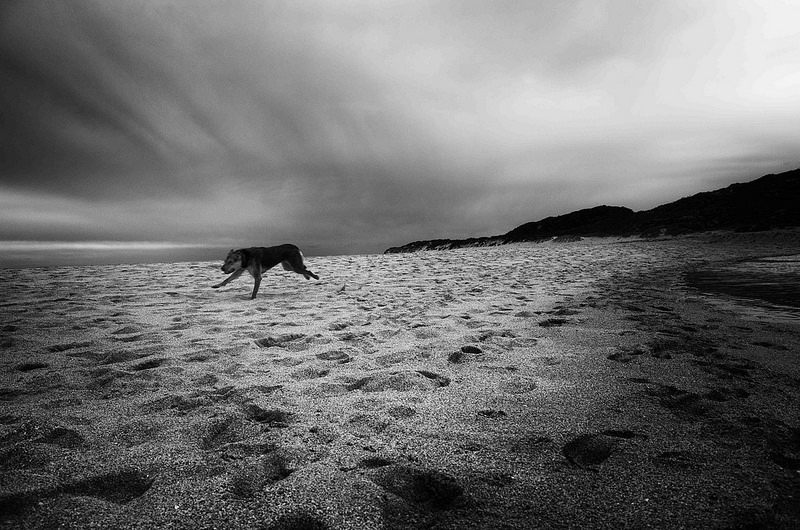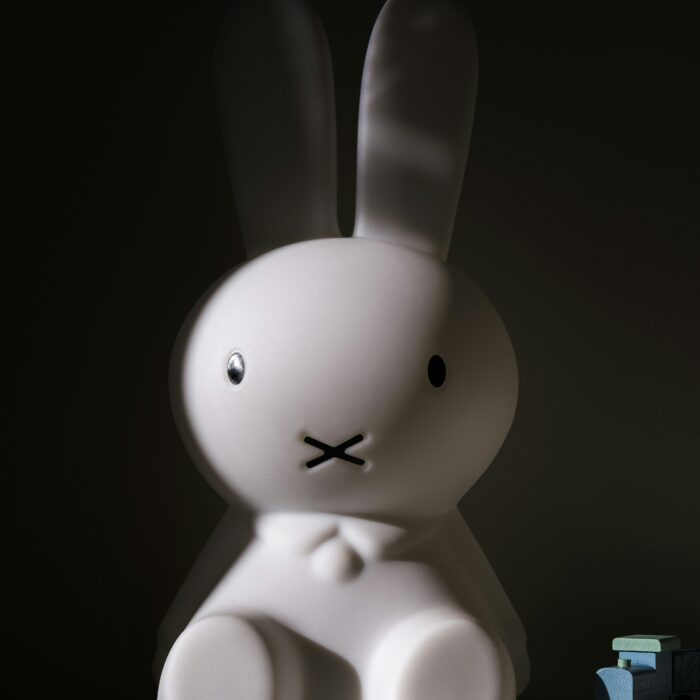You have no items in your cart. Want to get some nice things?
Go shopping
There are no screens on the windows; at night we wrap ourselves in bed sheets and wait for the mosquitoes to come. Even the night crickets sound hungry for our skin. In the morning, we count the welts the bugs have left. Some mornings we find dried spots of blood on our skin; we think spiders and bees find us during the night. I can take the bug bites, I can take anything but the return of the dog that ran away.
Sometimes after lights out, the guys climb up the fire escape and through our open windows. Their floor is just beneath ours; when they come up during the day they must announce, “Man on the floor.” And I think, come on, you guys are sixteen and act like you’re twelve, say instead, “Boy on the floor.”
It’s against house rules for them to be up here after dark; we could all be kicked out if caught. The counselors think we’re doing drugs or fooling around when we’re together, but we are not. We sit in the shadows, not talking or touching, not even looking at one another; just sitting, listening to mosquitoes buzzing about our faces.
This is the city’s youth shelter; but it’s temporary, which I think is a great joke. A temporary shelter; settle in, then pack up and move. It is almost as amusing as the notion of home.
From the outside, the shelter looks condemned, with its rusted out fire escapes and stray cats pissing on the side lot filled with gravel. There’s not much green grass down here, but we don’t car. One of the boys said he ran away because his father made him mow the lawn every weekend, but I know about his nightmares; I’ve heard him yelling through the open windows from the floor beneath ours. We keep these things silent during daylight hours.
Inside, there’s a wide staircase with frayed carpet and eighteen creaking stairs. The boys’ bedroom is on the second floor, ours is on the third; there’s only six of us here now, Gemma and me, and the boys. This is how it smells in the shelter, like burned out matches and cardboard boxes and dust, nothing like home, which is one of the reasons we stay.
Gemma has been here the longest. She calls herself a dinosaur and we agree, since she’s lasted almost two months. Her parents brought her here because they couldn’t stop her from going to the auto body shop on her neighborhood corner and screwing Eddie, the thirty-four year old mechanic. After a while, her parents just gave up, I guess, and put her here, hoping she’d be better watched, or maybe just because they wanted her out of their hair.
Now, Gemma hitchhikes back to her old neighborhood to see Eddie, and she’s had some close calls, getting picked up by freaks, a couple of times she’s had to jump out of moving cars, but she says it’s worth it to be with Eddie. She wants to have his baby.
I came to the shelter after spending most of the summer in Utica, living with an addict who shot up while her two year-old chewed the paint off cracked building blocks. I helped her boost cigarettes and candy bars, even pretended to have pneumonia at the emergency room to get narcotics for her, but I wouldn’t shoot drugs. Needles don’t scare me, but I’ve never really found drugs changed my perception of reality in any meaningful way.
The hardest part about running away was leaving my sister Rachel, but after she got placed in a foster home, it was easier to run, and now at least some of the dog nightmares have ended. I got the phone number of a runaway network off the chipped walls of the restroom in the Utica bus station; I was even assigned a case worker, a heavy man with meatball breath, who brought me to the addict’s apartment after he groped my breasts in his car. I didn’t see him again, and the addict didn’t have any furniture, but it was a place to crash for free, and at least she didn’t have a dog.
A month later, I wore out my welcome, and took a bus here.
Gemma taught me the house rules, and then she taught me how to break them. There’s a registration book by the front door; we have to sign out whenever we leave, so they’ll know how many of us are in the building in case of fire; it will make it easier to identify our charred remains.
The counselors don’t pay much attention to the registry, especially if we sign out in pairs, so Gemma and I go out together and after she hitches a ride to Eddie’s, I sit on the curb in front of Stevie’s Bar & Grill, or go to the Greyhound Station and check out their rates on one-way tickets to anywhere.
Gemma and I pass the time practicing piercing each other. We heat up sewing needles with matches and add more holes to our ears. So far, we haven’t worked up to cartilage, but I want her to do my nose, and she wants her navel pierced. Actually, Eddie told her it would be sexy, and Gemma wants pretty much whatever Eddie wants. Having a baby is her idea, though.
I had this conversation with Gemma once.
“Why would you want a baby?” I asked her, testing the end of a needle for sharpness. “They’re so much work.”
Gemma gets this look when she talks about Eddie, her freckles, like scattered
pinpricks, deepen on her pink cheeks. “We’re meant to be a family.”
“Where will you live?”
She shrugs her shoulders. “We’ll live in the back of the repair shop, I guess.”
“You gotta make sure to keep a baby warm.” I don’t bother advising Gemma about other things a baby would need, food, medicine, a father who wasn’t using the mother just for sex, because Gemma stopped listening to other people long ago.
The nights are letting go of their heat, and I start taking inventory of the blankets in the shelter, rounding them up and stuffing them under my cot. I may even steal them off the boys’ floor. I can stand the bugs, but I won’t listen to the dog bark, and I won’t be cold another night.
The cold nights were the hardest of all. Rachel had more trouble sleeping, on account of her smaller size.
“Why is it so cold?” Rachel asked me once, and I said it would be warmer soon, but I knew my parents pretty well by then, well enough to know the nights would only get colder.
When I got here and showed Gemma the scars on my wrists, she said, “You’re so brave, if I ever tried it would be pills.”
“You did it wrong,” said the orderly in the hospital. “You have to cut horizontally.”
“I’ll keep that in mind,” I told him.
“You’re not welcome here,” my parents said when I was released from the hospital, gauze bandages clamped to my wrists with tiny metal teeth. I picked Utica because it was as far away as I could get on thirty bucks.
The counselors use the term “throwaways,” which makes us sound disposable.
Petra works as the residential aide most weekends, we like her, especially when she swears at us in Spanish. She’s supposed to be Gemma’s counselor, but instead of having closed-door sessions, she says, “Hey, kid, how you doing today?”
And Gemma says, “Fine as wine.”
That’s how their weekly session goes.
Gemma says she’s seen Petra blow her nose on her hands and rinse it in the sink, but I figure, there’s never Kleenex around here, and maybe it’s part of her culture. She likes to tease us about our piercings, saying things like, “With all those holes you ain’t gonna need a nose to breathe.” She’s never serious, which is another reason we like her.
Petra taught us ways to bake with the bland ingredients they call food here. She sits in the kitchen with us while Gemma and I are up to our elbows in oatmeal raisin cookie batter. We make cookies every weekend, eating so many we shit green for days.
It’s a way to get rid of the oatmeal cereal though, which arrives by the case in individual boxes. “Institutional Use Only,” it says on each case. There’s blocks of cheese, too, long as my arm, and cans of tuna, but there isn’t any milk or mayonnaise, so we eat everything dry.
There’s a grocery list taped to the refrigerator; when I first got here I took it seriously. Every week I put things like bread and peanut butter on the list.
“Don’t bother,” Gemma told me. And I saw that the list disappeared every week, but no groceries arrived. After a while, we started putting things on the list like “money,” “happiness,” “good drugs,” and even “window screens.”
The day the reporter arrived, Petra was talking long distance to her relatives in Puerto Rico, and she waved me into the dining room to be interviewed first. Gemma went to round up the guys, who we knew to be getting stoned on the fire escape.
The reporter was wearing a buttoned-up jacket with a small black and white pattern, and heavy shoulder pads almost like a military uniform; I thought for a minute but couldn’t remember the name of the pattern. Before she spoke, she got out a silver pen and took a small bag of tissues from her purse to clean her glasses, and I thought, this should be a real hoot.
“I’ll give you a pseudonym for the article,” she said at last, glasses sliding down her nose. “You know what that is, right?”
I gave her a look instead of an answer, which she ignored.
“But while we’re talking, I’d like to call you by your first name, all right?”
I nodded, but even so, the name I gave her was not my own.
“How long have you been here?”
I could see this was going to be easy, one of those `just the facts’ pieces.
“Couple weeks,” I told her, pulling out a cigarette but not lighting up. “The place is temporary, you know.”
“I know,” she started to sneeze, fumbling at the tissue package. “Allergies,” she said, blowing her nose.
When we were little, my mother wore rubber gloves when she washed us. She had allergies, like us, and skin rashes; water only made it worse. I think I started having sex just to feel bare hands on my skin.
I bathed Rachel when I was old enough, leaving her in the warm water until her skin shriveled. “Hold me like a baby,” she’d tell me when I took her out of the tub, and I held her on my shoulder, breathing in the smell of her sweet milk skin, thinking, “I will never have a child.”
The reporter dabbed at her eyes with Kleenex. “Something’s setting off my allergies, is there a dog here?”
“There was a dog,” I shrugged. “He’s gone.”
“Thank God for that,” the reporter said, and I smiled; she was the first one to share my feelings about the dog.
Sometimes I still smell the dog in the shelter, and my lungs prick up, my eyes
start to water and I feel an allergy attack creeping in.
But the dog is gone. This is my theory about what happened to the dog: he ran away. The shelter was his home, and he grew to hate it. The others believe he was hit by a car, or stolen, or something else he didn’t deserve, and for weeks before I got here, they left food outside on the fire escape, hoping to lure him back. The first night at the shelter, I dreamt the dog found his way back, climbing in through the screenless windows to scratch at my bed, hollow-eyed and dripping at the mouth.
“I was born with allergies,” I told the reporter. “I was a blue baby; they had to transfuse my blood right after birth, suck it out through my navel and replace it.”
I waited for the reporter to look away, eyes cloudy with indifference, but she held my gaze. “It was because my blood type and my mother’s didn’t agree, they were fighting each other. I would have died after birth if my blood wasn’t changed.”
“That would have been a terrible thing,” the reporter said quietly, and it was then that I remembered the name of the pattern on her jacket: hounds tooth.
“Not really,” I said, straightening in my chair, squaring my shoulders. “Depends on which side of the fence you sit.”
“What’s been so bad that you feel that way?” she asked, putting her pen down.
Tuesday nights were allergy shot night at home. My father got out the copper-bottomed fry pan and boiled tiny stainless steel needles to inject Rachel and me.
“It’s going to make you better,” my father would say, sticking me with the needle. “This is what you’re allergic to; we’re making you immune.”
But I knew he was poisoning me. Each week, the shots got longer, and I wasn’t allowed to help Rachel while she stood on the stepstool, one sleeve of her dress rolled up, white patch of skin exposed. Later, red welts would grow under the puncture, and the itching set in.
“No scratching,” our parents told us. “Makes it worse.”
Rachel was too young to resist the terrible itching. They wrapped her fingertips in strips of torn sheets, and put her to bed. During the night, I’d lie on the floor next to her bed and rub her skin, trying not to leave scratch marks.
“A dog will kill you if it gets the chance,” my parents told us.
On a chilly Labor Day weekend, we took a trip to the state fair. Rachel and I wanted to go to the dairy pavilion to see the butter sculptures, and drink free samples of orange milk, or stand in line for a free baked potato, but my father brought us into the veterinary tent, where an audience was watching a dog being spayed.
I nearly choked when I saw the dog, legs sprawled open, spine down, soft white underbelly exposed, doctors cutting into the skin and peering inside the wound.
“Keep watching,” my mother told me. “Things like this make you tougher, make you strong.”
I kept my head straight but twisted my eyes around to Rachel, and I don’t know what was worse, watching the dog or seeing my sister’s face.
Many days of the summer, until it grew cold, Rachel and I sharpened Popsicle sticks on the gravelly cement of our back stoop, injecting the plastic arms of our Barbie Dolls.
“This is daddy,” she’d say, stabbing the doll with the pointed wooden tip.
I thought, at least she can be angry, after a while I’d forgotten how, and then I did that whole steak knife thing, but the cuts went the wrong way. In the hospital, they questioned me closely about why it happened, was I really trying to end my young life, or just crying out for help? As if my answer would matter. People from child protective services took Rachel away when she told a teacher at school about our homelife, but my parents pretty much talked their way out of it all. They could be pretty convincing, telling the child welfare people everything they’d ever done was to protect their children from fatal allergic reactions.
“Gemma can give you a better story. I gotta get back to my oatmeal cookies,” I told the reporter, standing up so fast I knocked the chair over, but before I could leave the room, she handed me her business card, saying I could call anytime. That night, I studied it long enough to burn the numbers into my mind, then made a small fire with it and dropped it into a crowded ashtray.
The reporter’s story ran the next day, under the headline, “Runaways Find A Place To Call Home,” which gave me and Gemma a good laugh. There was even a blurry black and white photo of the outside of our building; when we looked close in one corner we could see a dog squatting on the side lot, but Gemma said it wasn’t the one that ran away.
The reporter also sent a case of eggs, and gallons of milk, said she’d taken up a collection at the paper to buy the stuff, but most of it went bad before we used it up.
I couldn’t think of an answer to the reporter’s question, just this image in my mind, of my father smiling when he showed us pink scars on his arm where he said a dog attacked him as a child, and my mother binding Rachel’s fingers, her face set and hard as if it was the only way. There was no other way but their way. I had to leave before it became ingrained in me, and I would start seeing parts of them in me. They separated my blood from my mother’s at birth, but there was still poison in me, growing stronger with every allergy shot and every time I saw them smile, their poison seeping under my skin, enough to kill me if it got the chance.
Gemma’s three months here are almost up, and she’s getting bolder now, climbing down the fire escape after lights-out, and Eddie is getting bolder too, driving up to the corner in his souped-up Chevy, cutting the lights and waiting.
“He loves me, I think,” Gemma told me as she went out the screenless window.
I think that after I leave here, I will run into Gemma one day, pregnant, the pin-spotted freckles on her face deepened, grease under the white moons of her fingernails from living in the back of an auto body shop, and I will still be listening for buzzing mosquitoes that bite after dark, wondering if the dog ever made it back home.

About Cari Scribner
Cari Scribner lives in a historic village in upstate New York. She has been a working journalist/freelance writer for more than 20 years. She credits 6 NYS Writers Institute workshops for inspiring her fiction. Her work has been published, or is forthcoming, in the new renaissance, Gravel Magazine, Fiction Southeast, Bartleby Snopes, Brilliant Flash Fiction, New World Writing, The Tishman Review, Vending Machine Press and Drunk Monkeys. Cari is an assistant editor at Bartleby Snopes. She is at work on a memoir about growing up with a father with schizophrenia. Her little white house is on a sidewalk, and her small dogs Miloh and Syd bark incessantly at everyone walking by.




